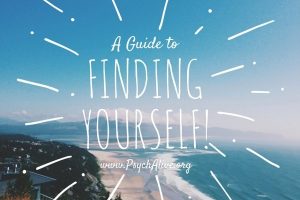Mindfulness Can Quiet Down the A**Hole Voice in Our Heads
I  was recently interviewing ABC News anchor Dan Harris, author of 10% Happier, for an upcoming online symposium on Uncovering Happiness. I really enjoyed spending time with him rapping about what happiness is really about and why mindfulness and compassion can help inspire it. But one of the things that really made me laugh was when he said it can stop you from being an A-hole.
was recently interviewing ABC News anchor Dan Harris, author of 10% Happier, for an upcoming online symposium on Uncovering Happiness. I really enjoyed spending time with him rapping about what happiness is really about and why mindfulness and compassion can help inspire it. But one of the things that really made me laugh was when he said it can stop you from being an A-hole.
It’s so true and here’s how.
Our inner voices can be a real pain sometimes, critiquing us, telling us what we can’t do or what will go wrong if we try. We wouldn’t want friends that spoke to us this way, so why do we tolerate these voices? They create irritability which only goes onto reinforce the A-holes in our minds. As I mention in my upcoming book, Uncovering Happiness, this is a big part of what drives the depression loop.
In a study a few years back Norman Farb and his colleagues at the University of Toronto published a study that showed how practicing mindfulness meditation reduced activity in the part of the brain associated with a wandering and critical mind. This was also correlated with lower scores on the Beck Depression Inventory compared with a group who wasn’t practicing mindfulness.
Could this cortical midline area of the brain be where the A-hole in our mind is? This is certainly a worthwhile doctoral dissertation.
In any case, it’s the experience of thousands and thousands of people that shows practicing mindfulness actually makes us more aware of the reactivity in our minds and bodies so we can relate to it differently.
If the A-Hole is popping its ugly head we’re (an it is) in need of self-compassion. Self-compassion is the action of knowing that we’re struggling in a particular moment with an inclination to want to be kind to ourselves.
Another study that came out of the University of British Columbia and Harvard showed that being kind to others is correlated with feeling happier. If we can learn how to integrate more mindfulness and self-compassion into our hearts and minds we will quiet this A-hole in our heads and be a bit happier. Now, as Dan says, that doesn’t mean we turn into the Dalai Lama or Mother Theresa, but it certainly helps.
Why not try a little of this right now. A short STOP practice is all you need to get started:
Stop
Take a few deep breaths.
Observe the moment, noticing how your body feels, what emotions you’re feeling and what’s on your mind.
Proceed by asking yourself; what’s most important for me to pay attention to right now?
Go ahead and give yourself this gift, learn how to quiet that critical mind.
Adapted from Mindfulness & Psychotherapy
Tags: critical inner voice, happiness, inner critic, inner voice, meditation, mindful living, mindfulness, self-critical









i hate my life